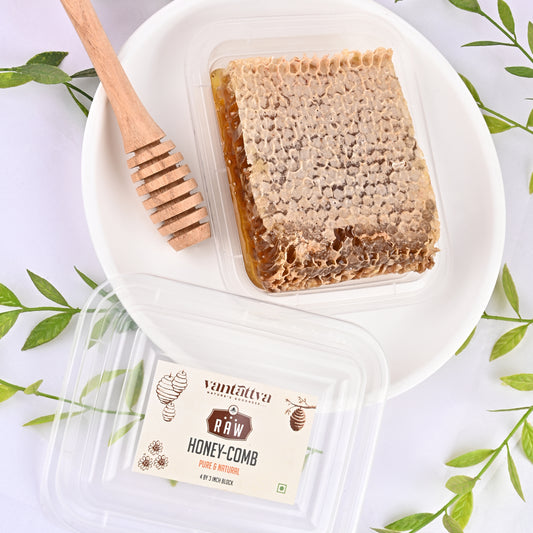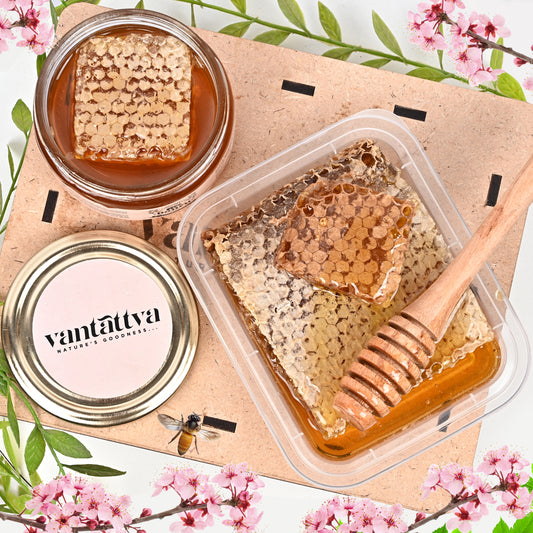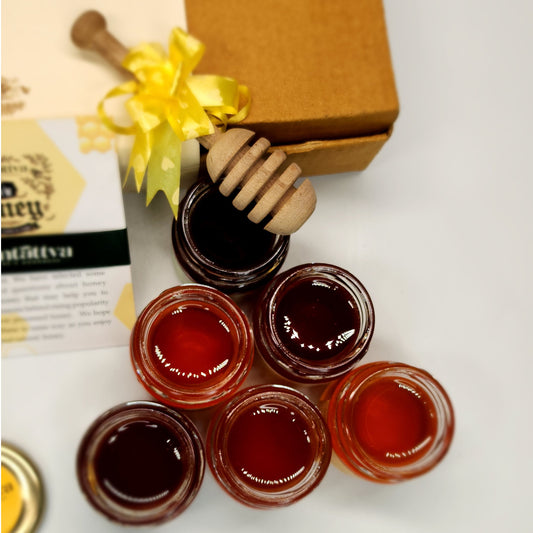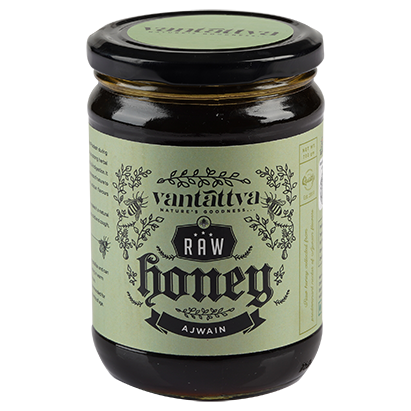Welcome to Vantattva
ABOUT VANTATTVA
Vantattva is dedicated to promoting cruelty-free honey, ensuring no harm, damage, or violence towards bees, eggs, or larvae during honey harvesting. We encourage beekeepers to adopt advanced techniques that improve beehive health and honey quality.
Quality is crucial in honey production. Incorrect extraction or processing can diminish honey’s health benefits. Our honey is extracted and packed using the best practices to preserve its natural qualities.
Why Choose Us
Why Vantattva
We utilize super chambers for honey harvesting, collecting surplus honey without disrupting breeding areas of beehives.
When it comes to handling our honey, we adhere to the principle that ‘Honey is best when it’s Raw.’ That’s why our honey is harvested at the peak of ripeness and undergoes no heating or microfiltration. This preserves its natural qualities and ensures that it’s as close to its original state as possible.
As a result of these practices, the honey we deliver is not only rich in essential elements such as pollen, enzymes, amino acids, vitamins, and minerals, but it also retains its natural floral flavors.
Quality Sourcing
Honey is collected from remote pristine locations far from pollution-generating industries, vehicular movement, and also as far away from mobile towers as possible. Locations are carefully selected so that our bees can forage upon the nectar of natural self-grown plants or plantations free from pesticides and chemicals.
Unprocessed & Raw
With the help of advanced beekeeping practices adopted by beekeepers, only surplus and ripe honey from super chambers is used for harvesting. When honey is free from larvae/eggs and is ripened by bees, there is no need for any further filtration, and no heating is required to artificially thicken the honey. Honey is simply strained and hand bottled to preserve all the nutritious elements of honey required for our health.
Unique Varieties
The most satisfying part of our journey is to provide our consumers with what nature has given us through bees and in order to achieve that, we never blend two varieties of honey.
Our honey is collected from different locations across different seasons and is primarily based on local and seasonal flora. We believe honey retains its best flavors and benefits in its natural form. Every drop of honey is 100% true to its name and carries the intrinsic benefits of those flowers.
Why Choose Us
Cruelty Free Honey Approach vs Traditional Approach
What sets us apart from others is our unwavering commitment to the well-being of our bees and the quality of the honey they produce. Unlike the traditional approach in India, where honey is harvested from a single box where bees live and raise their young, we’ve embraced a more thoughtful approach.
In the traditional single-box method, the bees share a single space for living, breeding, and storing honey. This setup often leads to harm and disruption when honey is collected, as it can inadvertently damage the bees, their eggs, and larvae.
In contrast, our approach prioritizes the health of the bee colonies by using a specialized multi-chamber bee box system. In this system, the beehive is divided into two distinct chambers—a brood chamber and a super chamber—separated by a fine mesh. The brood chamber is where the queen bee lays her eggs, and it’s dedicated to the growth and development of the bee colony. The queen bee is the only bee in the colony with the responsibility of laying eggs, while the rest of the bees in the colony, known as workers, are responsible for maintaining the hive and collecting nectar from the outside.
Our use of a multi-chamber bee box, with the critical inclusion of the mesh separator, is a cornerstone of our cruelty-free approach to honey production. This mesh sheet prevents the queen bee from accessing the super chamber where honey is collected. This separation ensures that no harm comes to the bees or their brood during the harvesting process. By allowing the bees to store their honey separately in the brood chamber, we ensure that they have ample resources for themselves, while only surplus honey is collected.




